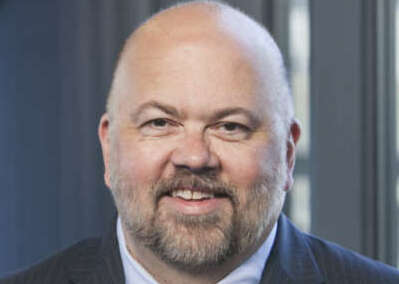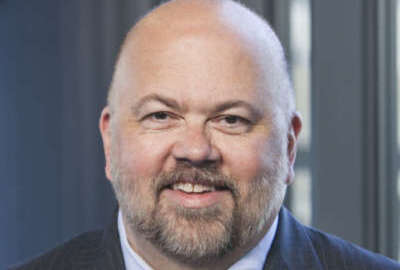
Congress should act on OPM, but maybe not for the reason you think
The Trump administration proposed “fully reorganizing” the Office of Personnel Management and moving personnel between the General Services Administration a...
This column was originally published on Jeff Neal’s blog, ChiefHRO.com, and was republished here with permission from the author.
Best listening experience is on Chrome, Firefox or Safari. Subscribe to Federal Drive’s daily audio interviews on Apple Podcasts or PodcastOne.
The Trump administration proposed “fully reorganizing” the Office of Personnel Management. If the Administration’s proposal is implemented, the bulk of OPM will land in the General Services Administration while a handful of policy people will end up in the Office of Management and Budget. I wrote about the budget proposals in more detail on March 13.
Very few people I have talked with believe the House of Representatives is going to pass legislation that would allow OPM’s work to move to GSA. What I hear most often is that it’s not going to happen, so the administration should drop the idea. As I said in my March 13 post, the status quo wins again. Strong supporters of the federal workforce tell me that’s the best outcome, so just leave it alone.
But is it the best outcome? I think the answer is no. Not because I believe OPM should be abolished, or because I think Congress should support the proposal to move the work, but because OPM has been broken for a long time and the already-approved move of background investigations to the Defense Department is going to have side effects that will bring the crumbling foundation of OPM into plain sight.
OPM’s problem is not its people, nor is it the Civil Service Reform Act that created the agency, or the changing nature of the federal workforce. The real problem is that OPM was basically gutted by the National Performance Review (NPR) in the name of “reinventing government” between fiscal 1993 and fiscal 1996.
| FY 1993 (Actual) | FY 1996 (Budgeted) | ||
|---|---|---|---|
| Budget | Staff | Budget | Staff |
| $452 million | 6,208 | $377 million | 3,557 |
“Our investigations unit, which conducted government background investigations, was also made up of highly skilled individuals. We presented them with several options, including that of starting an Employee Stock Ownership Plan, a new employee-owned company that would perform many of the same services but in the private sector,” former OPM Director James B. King said. “We worked with these employees during the complex negotiations that led to the creation of an ESOP called U.S. Investigations Services Inc. By July 1996, 681 of the 706 employees who were offered jobs with the new company had accepted them, and USIS Inc. began operations, aided by an exclusive contract to conduct investigations for OPM. The creation of USIS Inc., was the first government privatization of its kind, and we believe it has every prospect for success. A private consulting firm estimated that the action should save the taxpayers $25 million in five years.”
“NPR declared war on unnecessary regulations and red tape, and OPM responded with the elimination — a year ahead of schedule — of both the all-but-incomprehensible, 10,000-page Federal Personnel Manual (saving an estimated $30 million) and the complicated Form 171 job application,” King said. “In most cases, people seeking jobs now can simply submit a resume, or even apply by telephone.”
Related Stories
OPM reduced its workforce by 43 percent. Following blowback from its handling of the Edward Snowden background investigation, a 2014 cyber attack, fraud charges filed by the Justice Department and OPM’s decision to not renew their contract, the parent company of USIS Inc. filed for bankruptcy. The “all-but-incomprehensible” Federal Personnel Manual (actually 84 percent of it) was replaced with a void that left HR Specialists without guidance on countless subjects. The FPM was not incomprehensible, but it was complex. That’s because the subjects it covered were complex and the underlying overly-complicated and all-but-incomprehensible regulations were mostly left as they were.
The NPR branded OPM as a “systems control” agency and slashed its budget and staffing and that was supposed to lead to great things happening. As the NPR put it,“Talk to a federal manager for 10 minutes: You likely will hear at least one personnel horror story. The system is so complex and rule-bound that most managers cannot even advise an applicant how to get a federal job … We must enable all managers to pursue their missions, freed from the cumbersome red tape of current personnel rules. The president should issue a directive phasing out the Federal Personnel Manual and all agency implementing directives. The order will require that most personnel management authority be delegated to agencies’ line managers at the lowest level practical in each agency. It will direct OPM to work with agencies to determine which FPM chapters, provisions, or supplements are essential, which are useful, and which are unnecessary. OPM will then replace the FPM and agency directives with manuals tailored to user needs, automated personnel processes, and electronic decision support systems.
“Once some of the paperwork burden is eased, our next priority must be to give agency managers more control over who comes to work for them. To accomplish this, we propose to radically decentralize the government’s hiring process.”
That really worked out well. The NPR replaced the background investigations in OPM with a company that was accused of fraud, cost $250 million per year and went broke, resulting in much of it being rebuilt as a reimbursable program in OPM. It gave recruiting authority to agencies, but made them follow a 350-page OPM Handbook. It replaced the “dreaded SF-171” with equally dreaded federal-style resumes that are just SF-171s without the boxes. It eliminated the FPM, but kept the complex regulations and eliminated many of the OPM staff who were the real experts who could explain all those regulations. Not to worry – agencies had HR experts who could help. At least they did until the NPR cut them by half, leaving federal HR offices unable to do anything but the most essential work. The initial ideas of the NPR may have been sound, although the original report had a lot of snarky anecdotes. But, at least with respect to federal HR, the NPR was a half-baked set of reforms that broke the mold and did not put something functional in its place.
The NPR radically downsized OPM, resulting in the agency losing much of its experienced workforce and stopping hiring for several years. It moved so much of OPM’s work to a revolving fund, rather than appropriated dollars, that virtually every current or former OPM executive I have spoken with says that OPM’s core mission cannot function on its appropriations alone. If OPM loses the revolving fund money, they believe the agency cannot do its work. They aren’t saying OPM cannot do the work covered by the revolving funds — they are saying OPM cannot do the work covered by the appropriations. Those revolving funds absorb so much of the overhead of running the agency that without those dollars, the policy and oversight work of OPM is at risk.
Moving the mission and money to GSA does not solve the problem, it just moves it and makes it GSA’s problem rather than OPM’s. The move also does not solve the organizational conflict of interest that resulted from the NPR putting OPM in a position where it writes policy, sells services related to those policies, then provides oversight to agencies covered by the policies. Leaving OPM as is, minus the background investigation work, also does not solve the problem.
If OPM will struggle whether or not it’s left alone or part of GSA, what’s the solution? I believe Congress needs to conduct a thorough review, perhaps via the Congressional Budget Office or the Government Accountability Office, of the funding sources of OPM with the intent of adequately resourcing the agency and eliminating the conflict of interest. Whether the end result is OPM as a stand-alone agency or as a service within GSA, it must be adequately funded to preserve the mission of the agency. Democrats and Republicans alike should want an agency that operates efficiently and has sound finances. Whether they can overcome the politics of civil service issues and do the right thing is debatable, but they should try.
My preference would be a smaller OPM with all of the fee-for-service work moved out — Investigations to Defense and the remainder to GSA — and the remaining smaller agency fully funded with appropriated dollars for everything but the work of the trust fund: Civil Service Retirement and Disability, Employees Life Insurance, Federal Employees Health Benefit and Retired Employees Health Benefits Funds. A look at the trust funds and whether they are adequate for current and future needs is probably a good idea as well. After more than two decades of broken funding, we are long past the time to get a handle on what these functions really cost and fund them accordingly.
One last thought — some folks may think the best thing to do is to decentralize all of this and move it out to the agencies, similar to what the NPR proposed in 1993. The result of such a move would most likely be a Balkanized civil service of “have” and “have-not” agencies, with those roles shifting based upon which party is in control at any given time. It would also increase costs, because policy work would be done repeatedly to design workforce policies tailored to the “unique needs” of every agency. Tailored HR programs may sound like a good idea, but the reality is that federal agencies have far more in common than they like to believe. Well-designed and timely programs created by a fully functional OPM, with flexibilities that would allow more choices to agencies, would be far better than an “every agency for itself” approach. It would also be far better than leaving OPM alone and waiting for it to implode.
Jeff Neal is a senior vice president for ICF and founder of the blog, ChiefHRO.com. Before coming to ICF, Neal was the chief human capital officer at the Homeland Security Department and the chief human resources officer at the Defense Logistics Agency.
Copyright © 2024 Federal News Network. All rights reserved. This website is not intended for users located within the European Economic Area.




